
Jess Walter’s So Far Gone, Catherine Lacey’s The Möbius Book, Susan Choi’s Flashlight, and Caroline Fraser’s Murderland all feature among June’s best reviewed books.
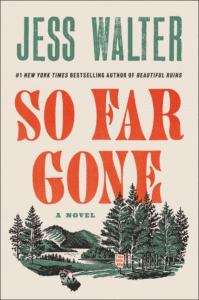
1. So Far Gone by Jess Walter
(Harper)
12 Rave • 2 Positive • 2 Mixed
Read an interview with Jess Walter here
“Searing and sublime … Walter is a slyly adept social critic, and has clearly invested his protagonist with all of the outrage and heartbreak he himself feels about the dark course our world has taken. He’s also invested his protagonist with a self-deprecating sense of humor that keeps his pessimism from veering into maudlin territory. If there’s hope to be found within this harsh landscape, it’s in our connection with one another.”
–Leigh Haber (The Los Angeles Times)
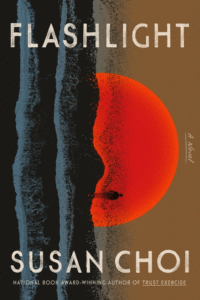
2. Flashlight by Susan Choi
(Farrar, Straus and Giroux)
7 Rave • 7 Positive • 1 Mixed
Read an interview with Susan Choi here
“Prickly, gorgeous … There are no moments of total illumination here, just a beam shining briefly on a target before scanning restlessly onward … One thing that hasn’t changed is what an outlandishly talented writer Choi is, her prose possessing an iron confidence in its own beauty. She favors complex, lightly punctuated sentences whose payoff comes late … Choi is a writer who can be trusted to have a plan, and she sews the narrative up with a conclusion that’s almost impossibly heartbreaking—about which the less said the better. Some things you can see coming from miles away. But life, we’re reminded, retains its ability to surprise.”
–Sam Worley (Vulture)
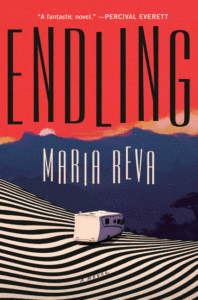
3. Endling by Maria Reva
(Doubleday)
9 Rave • 2 Positive
“Remarkable … In another author’s hands, these departures might be experienced as digressions, draining suspense and power from the story, but Reva they alchemizes them into something between imagination and reality, an original way to investigate the artifice of the novel—its limitations but also its expansiveness … Reva places her metaphorical arms around all of it—with the intention of using language to express the inexpressible: senseless violence, loneliness, extreme suffering and grief … Wildly inventive.”
–S. Kirk Walsh (The Washington Post)
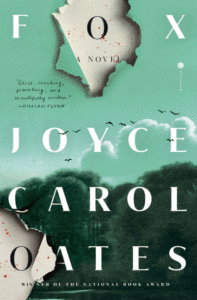
4. Fox by Joyce Carol Oates
(Hogarth)
7 Rave • 1 Mixed
“The novel is a whodunit, but to reduce it entirely to that distinction would be inaccurate … Inescapably abhorrent yet enthralling … This is a chilling reminder that artistic mentors can be abusive in many different ways … Fox hauntingly explores the way that beguiling figures can inspire, create and shape art.”
–Heather Scott Partington (The Los Angeles Times)
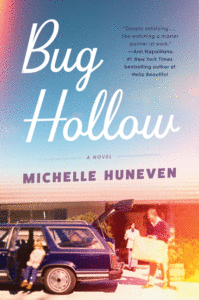
5. Bug Hollow by Michelle Huneven
(Penguin Press)
6 Rave • 2 Mixed
Read an interview with Michelle Huneven here
“Extraordinary candor and tenderness … The family that initially felt so shiny and self-contained gives way to individual stories that butt up against one another at skewed angles. It’s not confusing; it’s eye-opening … Right down to its final moments, Huneven casually offers up little revelations that crunch as sweet and tart as pomegranate seeds.”
–Ron Charles (The Washington Post)
**
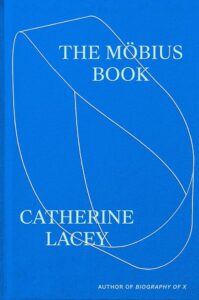
1. The Möbius Book by Catherine Lacey*
(Farrar, Straus and Giroux)
6 Rave • 6 Positive • 2 Mixed • 1 Pan
Check out Catherine Lacey’s annotated nightstand here
“Deeply serious and engrossingly playful, and it lavishly rewards serious, playful attention … Lacey is fascinated by literary form and by the metaphors for literary form, finding fiction at once a constraint and a space for play … The two modes of the book, which I hesitate to call fiction and memoir because neither is wholly committed to realism or reality, undermine each other, with images and anecdotes reappearing in transmuted form … The questions are constant, implicit, teasing, elaborated rather than answered in the dark mirror of life writing.”
–Sarah Moss (The Guardian)
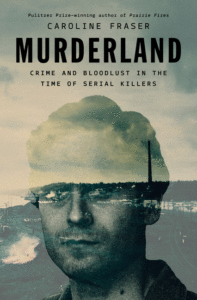
2. Murderland: Crime and Bloodlust in the Time of Serial Killers by Caroline Fraser
(Penguin Press)
6 Rave • 4 Positive • 2 Mixed
Read an excerpt from Murderland here
“Extremely disturbing … Intellectual framework underpins but never impedes the momentum of Fraser’s compelling, beautifully written text … This propulsive narrative is buttressed by extensive research documented in voluminous footnotes. With facts at her fingertips, she disdains to pretend objectivity … This is a cautionary tale, not a triumphal one, and Fraser closes with a passionate, angry passage whose biblical cadences ring with righteous fury.”
–Wendy Smith (The Washington Post)
3. Desi Arnaz: The Man Who Invented Television by Todd S. Purdum
(Simon & Schuster)
7 Rave • 1 Positive
“Purdum’s deeply researched, insightful and enjoyable biography, gives Arnaz his due as an entertainer and a savvy businessman … With sympathy but open eyes Purdum chronicles Arnaz’s descent into alcoholism, which sapped his creative energy and the goodwill he had established over the years.”
–Douglass K. Daniel (Associated Press)
4. Homework: A Memoir by Geoff Dyer
(Farrar, Straus and Giroux)
3 Rave • 7 Positive • 2 Mixed
“A good memoir needs to be both particular and universal, which Dyer achieves by applying his idiosyncratic world view to experiences many of us will recognise … I was more or less constantly giggling for pages at a time … Extraordinarily moving … If you’ve read Dyer before then you’ll need no persuasion to read this book. If you haven’t, it’s the perfect place to start.”
–John Self (The Times)
5. The Place of Tides by James Rebanks
(Mariner Books)
6 Rave • 2 Positive • 1 Mixed
“A book of stillness, quiet, vigilance, and the kind of patience that is measured not in hours but in lifetimes … A tender, diaristic, inevitably elegiac account of his apprenticeship with Anna and her friend Ingrid … Each phase in this arcane process is meticulously described … From the precision of these descriptions an exquisite, limpid beauty gradually emerges.”
–Will Atkins (Financial Times)
*The Möbius Book is also partially a work of fiction, though its nonfiction section is lengthier.
If you buy books linked on our site, Lit Hub may earn a commission from Bookshop.org, whose fees support independent bookstores.

